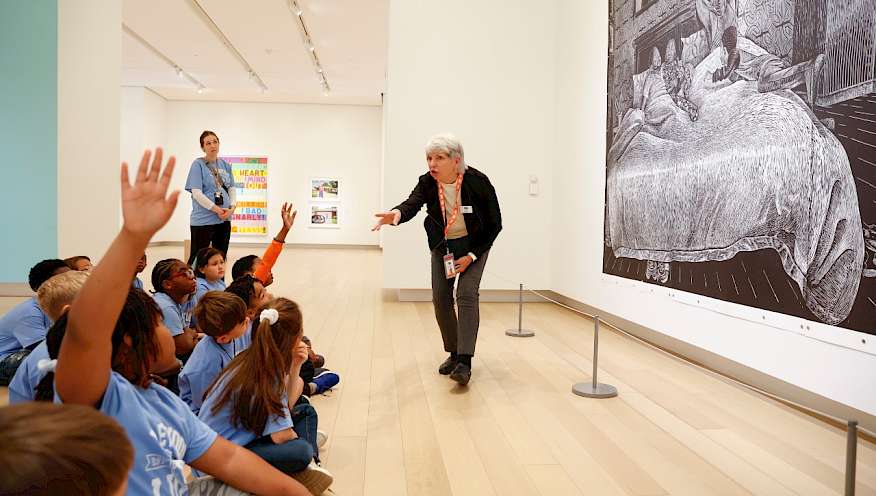Max Beckmann
Source: "Beckmann, Max," Microsoft® Encarta® Encyclopedia 2000. © 1993-1999 Microsoft Corporation. German expressionist painter and printmaker, whose works convey his pessimistic view of society. Born in Leipzig, he was trained at the Weimar Academy of Art and worked at first in an impressionist style. His horrifying experience as a medical corpsman in World War I (1914-1918) led him to produce highly dramatic and energetic paintings characterized by heavy outlines, areas of harsh color, and an unrelenting savagery. Like the work of the New Objectivity movement, his paintings expressed social criticism of postwar Germany. Beckmann's dismay at the rise of the Nazi Party in the 1930s was reflected in nine triptychs, huge, grimly realistic figural allegories in strident hues, such as Departure (1932-1933, Museum of Modern Art, New York City). Departure was painted just after the Nazis ousted Beckmann from his art professorship at the Städel School of Art in Frankfurt as a "degenerate." In 1937, on hearing that his work would be included in the Nazi Degenerate Art Exhibition, he immigrated to Amsterdam, and in 1947 he went to the United States. He taught at Washington University in St. Louis, Missouri, from 1947 to 1949, then moved to New York City, where he died the following year. http://www.artchive.com/artchive/B/beckmann.html 6-16-2010Source: "Beckmann, Max," Microsoft® Encarta® Encyclopedia 2000. © 1993-1999 Microsoft Corporation. All rights reserved.


















